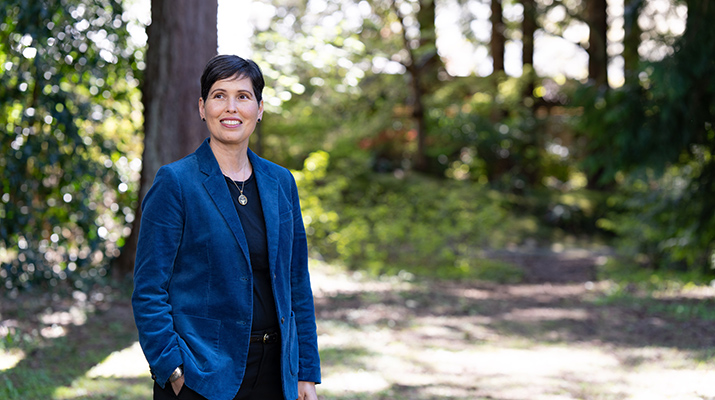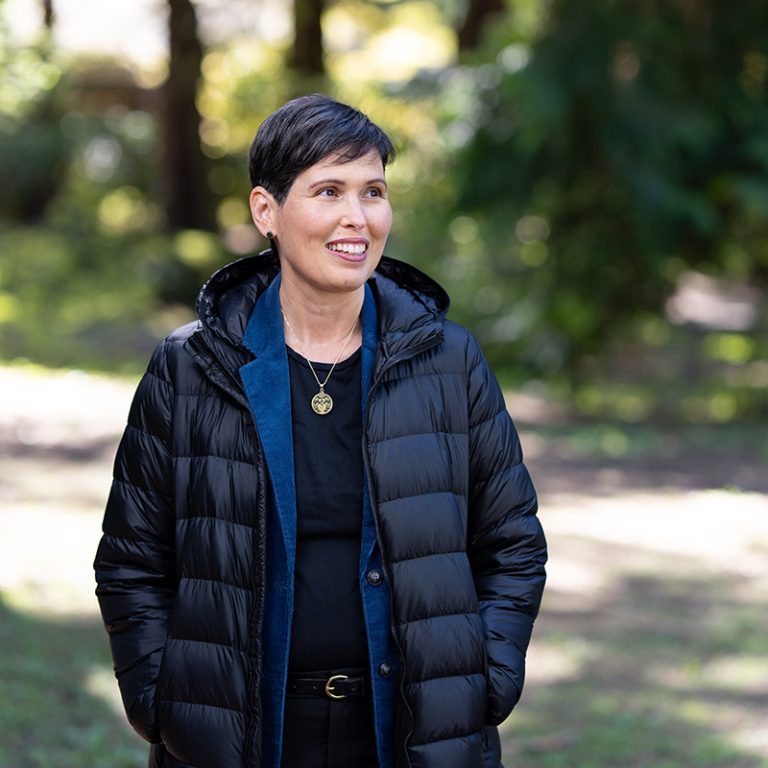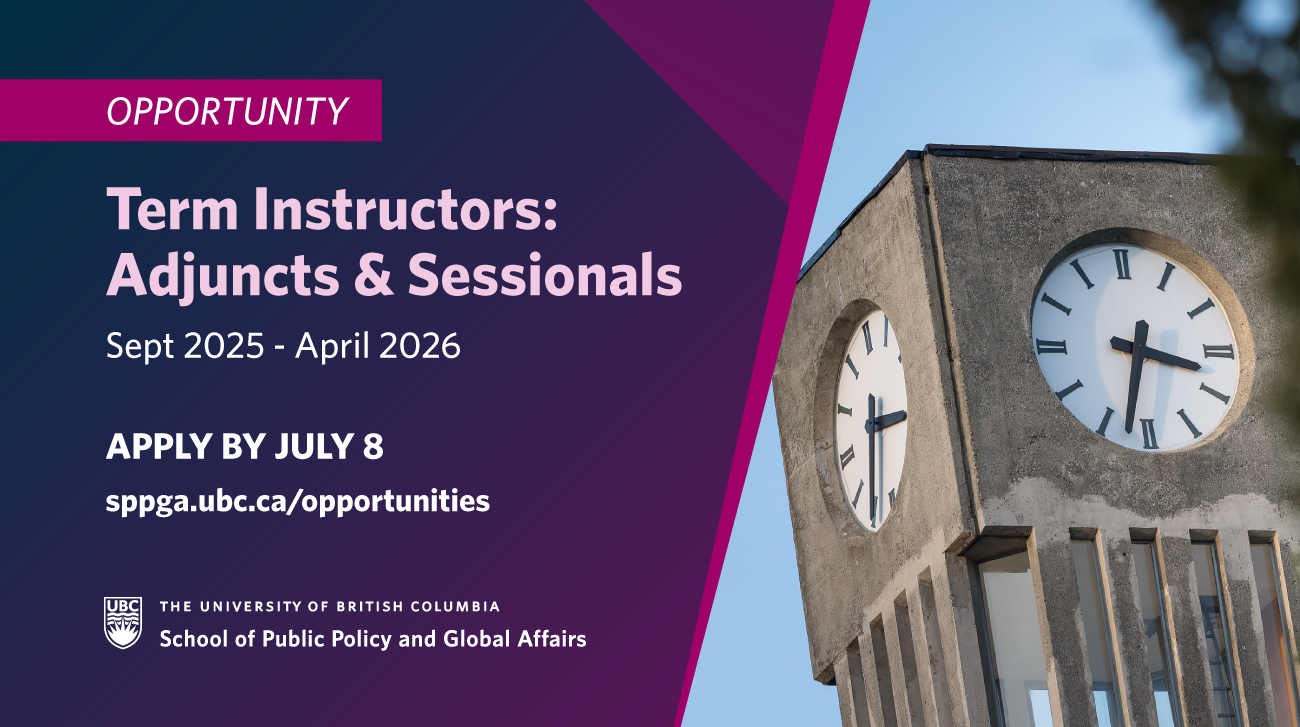

“My interest in how diverse publics come to know and care about climate change drives my research... the questions related to how media might contribute to public understanding and hold governments accountable remain as potent as ever.”
The School of Public Policy and Global Affairs is pleased to welcome Associate Professor Candis Callison to the SPPGA faculty, jointly appointed with the Institute for Critical Indigenous Studies.
Prof. Callison brings a wealth of expertise as the Canada Research Chair in Indigenous journalism, media, and public discourse. She is Tahltan (Tałtan), and her research examines the role of journalism in narrating the complexities of climate change and colonial legacies, shedding light on the challenges faced by Indigenous communities.
Candis is the co-author of Reckoning: Journalism’s Limits and Possibilities (Oxford University Press, 2020) and author of How Climate Change Comes to Matter: The Communal Life of Facts (Duke University Press, 2014). She is a member of The American Academy of Arts and Sciences and was a visiting professor at Princeton University in 2018-19. She is a founding board member of Tu’dese’cho Wholistic Indigenous Leadership Development Society and a regular contributor to the well known and long running podcast, Media Indigena.
We caught up with her to find out a little bit more about her what drives her research, and what current projects she’s excited about:
Can you tell us a little bit about yourself and how you came to focus in on areas such as Indigenous journalism and climate change? What drives your research?
If I had to describe my interests in a word, I’d say change, both the environmental kind and media change. Where those two topics meet is where you’ll find my research, looking at what role journalism might play in helping narrate and understand how we got here to a world facing climate change and still reckoning with colonialism. How we navigate climate change impacts and what we imagine as our shared past and future are deeply linked.
I started my career in media over 30 years ago, a few years before the Internet emerged as a transformative force that has not only changed our daily lives, but the way we think about and produce news and information. This was also a few years before the launch of APTN, which also contributed to changing how Indigenous people are reported on and who’s reporting. It’s still amazing to me that I get to research, write, and teach about Indigenous journalism when there were so few Indigenous people working in journalism and media when I started. Media looks pretty different these days, and all kinds of great work is being done and recognized, finally. Figuring out how to make it work economically is an enduring problem and one in which policy plays a not insignificant role, and I see lots of innovation and reasons for hope.
My abiding interest in and professional background in media was what initially got me into academia, but it’s my interest in how diverse publics come to know and care about climate change that really drives my research. When I was researching what would become my first book, a lot of the talk then was about what role media played in both informing publics and compelling policymakers to address it as a real and present problem. The role media plays has changed in part because media has changed, but the questions related to how media might contribute to public understanding of climate change and hold governments accountable remain as potent as ever.


“Indigenous communities have been at the forefront of both dealing with climate change impacts, and sounding the alarm that we need to think differently about our relations with each other and the nonhuman world.”
What are you working on currently?
Indigenous communities have been at the forefront of both dealing with climate change impacts, and sounding the alarm that we need to think differently about our relations with each other and the nonhuman world. A lot of my recent work has been to call attention to just how challenging it is to both reckon with colonialism and climate change — and how that impacts both media narratives and barriers that hinder and sometimes impede adaptive actions being undertaken by Indigenous communities.
I just finished working as a contributing author on the 5th US National Climate Assessment, and the first chapter on social systems and justice. This was a great experience to work with a range of scholars in the social sciences, and bring together research that sheds light on how policymakers and institutions might support collective responses that take into account the persistent inequality and disparities among communities in the U.S.
I’m also continuing on with a long term research project on journalism in the Arctic region. I’m excited to head back into the field this summer, especially as discourse about climate change in the North continues to evolve and shift.
What are you most excited about in joining SPPGA as a faculty member?
I’m excited about all of the research and teaching going at SPPGA. I’ve really enjoyed my interactions with students, faculty, and staff in the short time since I joined. I had the opportunity to give a guest lecture recently to first year students, and the discussion afterwards was really engaged and inspiring.
What’s a fun fact about yourself?
I’m the daughter of a Tahltan guide and outfitter. If you don’t know what that means, you probably haven’t spent much time in the North. Essentially, a guide and outfitter is someone who owns the right to bring people to a territory to hunt and fish, and they supply them with what they need while they’re in that territory. It’s an industry that is closely managed by conservation rules and guidelines. What it meant for me is that I grew up riding horses in the summer and spending time with my dad, sisters, and other extended family on our traditional territory. I don’t get on a horse much anymore, but it’s my time out on the land that continues to inform and inspire my work related to climate change and Indigenous communities.


